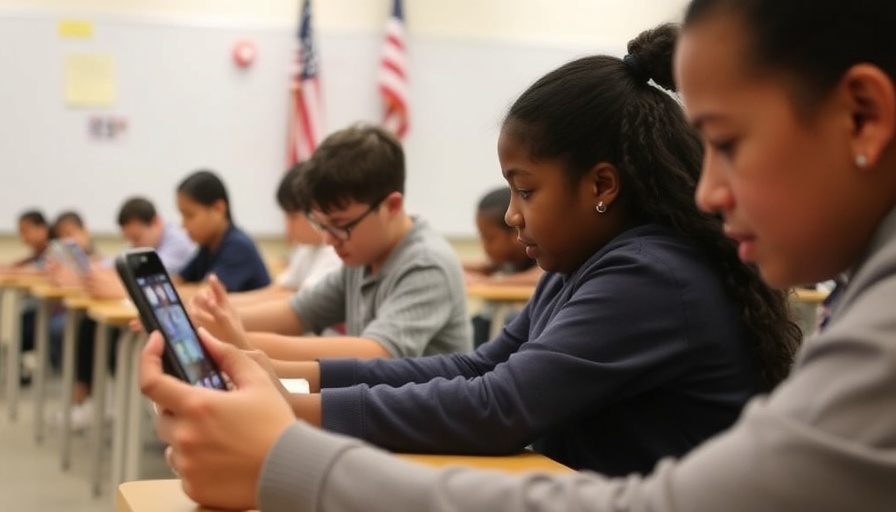
Texas Moves to Ban Phones in Classrooms: The Key Details
A groundbreaking bill in Texas aimed at banning students from using cell phones in classrooms is now on its way to Governor Greg Abbott's desk for approval. House Bill 1481, which recently passed the Texas Senate, proposes that public and charter schools across the state will be required to confiscate student devices, including smartphones, tablets, and smartwatches, during the school day. The intention behind this law is clear: to reduce distractions in classrooms and help students focus on their learning.
The Driving Forces Behind the Bill
The push for House Bill 1481 is spearheaded by Representative James Talarico, a former public school teacher who recalls the significant time he spent managing cell phone use in his classroom, diverting him from teaching core subjects such as reading and writing. Talarico states, “We have a real problem with cell phones and social media.” The bill has garnered bipartisan support and emphasizes the need for educators to regain focus and time within the limited school day. Educational experts, including parents and school administrators, express hope that the law will improve student engagement and academic outcomes.
Concerns from Parents and Experts
However, the proposed legislation has not escaped scrutiny. Some parents, like Stephanie Holdren from the Texas PTA, have expressed concerns about the implications of a full-day cell phone ban. They worry that the law might inhibit their ability to communicate with their children in emergency situations. Holdren remarked during a committee hearing that the total prohibition leaves parents feeling uneasy about the lack of access to their children during school hours.
Benefits of the Phone Ban
Looking at the precedent set by similar policies, Robert T. Hill Middle School in Dallas ISD implemented a phone ban in 2019 with impressive results. A district report indicated a 75% decrease in bullying incidents and a 13-point increase in students meeting academic expectations on the STAAR test after the ban was enforced. This connection between reduced screen time and improved student performance is one reason advocates, including many educators, are encouraging further measures to limit distractions in schools.
The State of Education in Dallas
As Dallas moves into the 2025 elections, the conversation surrounding education policy will be crucial. With potential local government changes on the horizon, including upcoming Dallas city council elections, education will likely be a focal point of discussion among candidates. Local education policies, including developments such as House Bill 1481, will shape the future of the Dallas education system.
Looking Ahead: What This Means for Texas Students
If enacted, House Bill 1481 could set a precedent for other states grappling with similar challenges regarding cellphone usage in schools. Advocates believe that enforcing such policies could help create a more focused and productive environment in classrooms, ultimately supporting students' academic success. As the bill awaits the governor’s signature, educators and school administrators are preparing to adapt to these new regulations that prioritize learning over distraction.
In conclusion, House Bill 1481 reflects a growing movement across the nation to address the increasing distraction of mobile technology in education. By potentially limiting phone access in schools, Texas is one step closer to fostering environments where students can thrive without the interruptions posed by their devices. Keep an eye on how this legislation unfolds and its impact on classrooms in Dallas and beyond. Are you ready to engage with local education policies? Your voice can shape the conversation!
 Add Element
Add Element  Add Row
Add Row 



Write A Comment